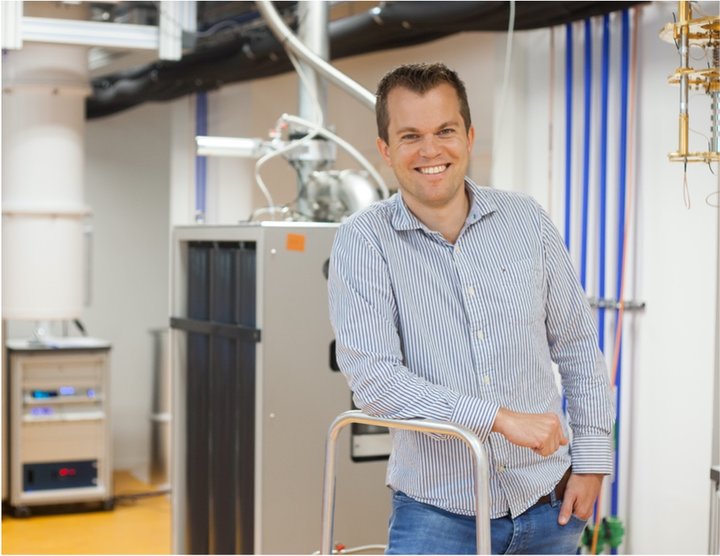We look back with pride on a year of personal and collective highlights. In April, we received the wonderful news that the full proposal of the Quantum Delta NL consortium was granted by the National Growth Fund. In October, Lieven Vandersypen received the Spinoza Award, the highest award in Dutch science. And in November, we launched the demonstrator platform Quantum Network Explorer, bringing the possibilities of quantum internet to everyone’s home. Throughout the year, we have witnessed strong growth of our local quantum ecosystem.
In this annual report you will read more about these and the many other great results, all achieved against the backdrop of the corona pandemic. None of these would have been possible without teamwork. QuTech is special because of our diversity: in expertise, disciplines, nationalities and organizational backgrounds, to name a few aspects. Every day, our researchers, engineers and support staff work together with our strategic partners, fellow research institutes and industrial partners around the world. Together, we are creating the quantum future.
We hope that this report will inspire you, perhaps even to actively join us on our journey?
On behalf of all QuTech colleagues,
Kees Eijkel
Director of Business Development
Lieven Vandersypen
Director Research
Charlotte van Hees
Director of Operations
Board of Directors, QuTech

In my lab, we are currently betting on silicon and germanium as the quantum materials for the future quantum computer. In 2019, we showed for the first time that silicon qubits can be operated even at temperatures above one Kelvin. This opens perspectives for quantum integrated circuits that host both qubits and control circuitry. With germanium, we showed that we can execute full two-qubit logic. This was a fascinating result, even more so because we had only been working on it for about two years. What fascinates me most is that we have to be creative at all levels, from fabrication to design, from experiment to analysis. I simply love to solve these puzzles, in particular when other people say that they can’t be done. I’m not someone to take “no” for an answer.
At the same time, I think that being a parent has helped me to put things in perspective and become more flexible. When I come home after work, it is typically rush hour and I instantly have to switch to an entirely different mode. When my kids are in bed, I typically have fresh ideas and can continue to solve the puzzle.
- Menno Veldhorst